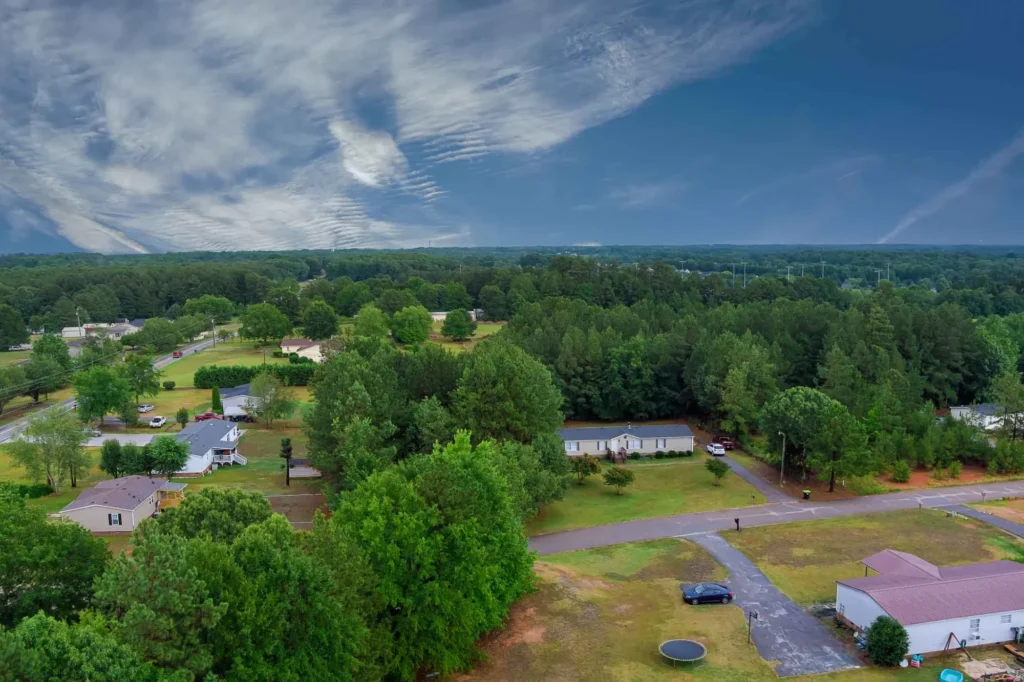
Get Rid of Millipedes in Your Dorchester County Home for Good
From rural lanes to new builds, Dorchester County’s clay pockets and shaded beds trap moisture that fuels millipede migrations.
Our approach dries the first foot of wall, seals entry seams, and treats with low-odor precision. For county-smart control, contact All U Need Pest Control at 1 (888) 239-BUGS.
Pest Control Services in Dorchester County, SC
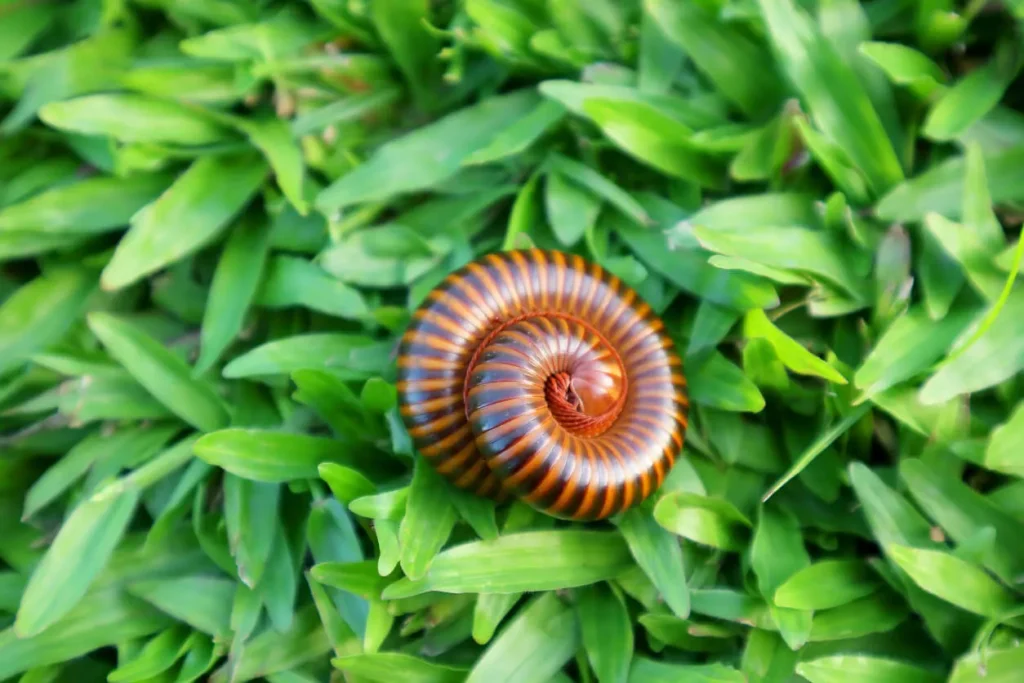
Millipede Control in Dorchester County, SC
Millipedes are a common concern for homeowners in Dorchester County, South Carolina. With its blend of historic towns, rural farmlands, and suburban neighborhoods, the county provides many of the moist, shaded environments these pests prefer. After periods of heavy rain or prolonged humidity, millipedes often migrate out of saturated soils and into homes, garages, and crawl spaces. While harmless in terms of biting or spreading disease, millipedes can stain floors with their defensive secretions and cause discomfort for residents.
Dorchester County’s subtropical climate, frequent thunderstorms, and lush vegetation create a favorable environment for millipedes year-round. Properties here often include large oak trees, pine straw mulch, and shaded gardens that trap moisture. Many homes feature crawl spaces, porches, and shaded yards, all of which are perfect for millipede activity. The mix of older architecture in Summerville, new subdivisions in North Charleston, and rural farmland homes makes pest control strategies diverse and highly localized.
At All U Need Pest Control, we specialize in pest solutions tailored to Dorchester County’s unique conditions. Whether you live in Summerville’s historic district, a family home in Ridgeville, or a modern build in Knightsville, our treatments are designed to manage moisture, reduce habitat, and prevent millipedes from entering your home.
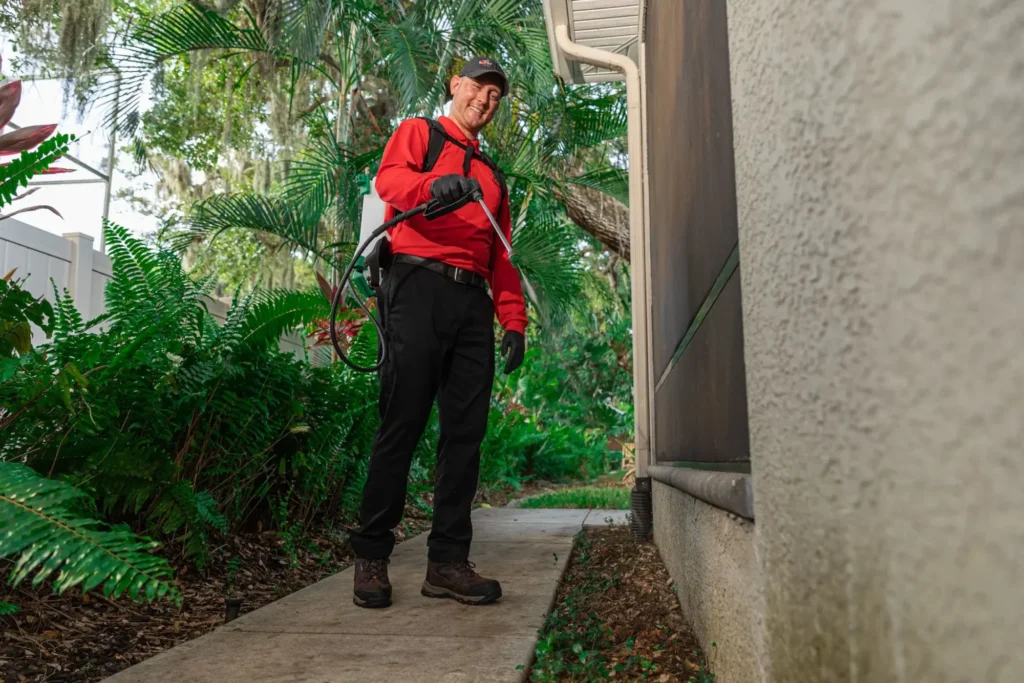
How to Get Rid of Millipedes in Dorchester County, SC
To eliminate millipedes effectively, it’s important to understand why they’re appearing. Millipedes feed on decaying leaves, mulch, and organic debris. When soil becomes too wet after storms or irrigation, oxygen levels drop, forcing millipedes to surface and seek drier spaces. In Dorchester County, this often leads them indoors during the spring and summer months when rain is frequent.
Here’s the Dorchester County roadmap for control:
Correct the moisture. Extend downspouts and splash blocks to carry water away from the foundation. Improve yard grading to prevent standing water. Consider encapsulating or adding dehumidifiers to crawl spaces, especially in low-lying neighborhoods where moisture builds quickly.
Modify the habitat. Thin out heavy mulch or pine straw layers, rake up fallen leaves after storms, and trim back shrubs or hedges that trap humidity near walls.
Seal entry points. Replace worn door sweeps, apply caulk to cracks, and use breathable covers on masonry weep holes. Check crawl-space vents and doors to ensure pests can’t sneak in.
Use targeted treatments. Strategic applications create a protective perimeter around your home. Placement and timing are key in Dorchester County’s storm-prone environment, where heavy rains could otherwise wash treatments away.
Maintain. Ongoing seasonal services ensure that millipede control continues during the county’s peak humidity months.
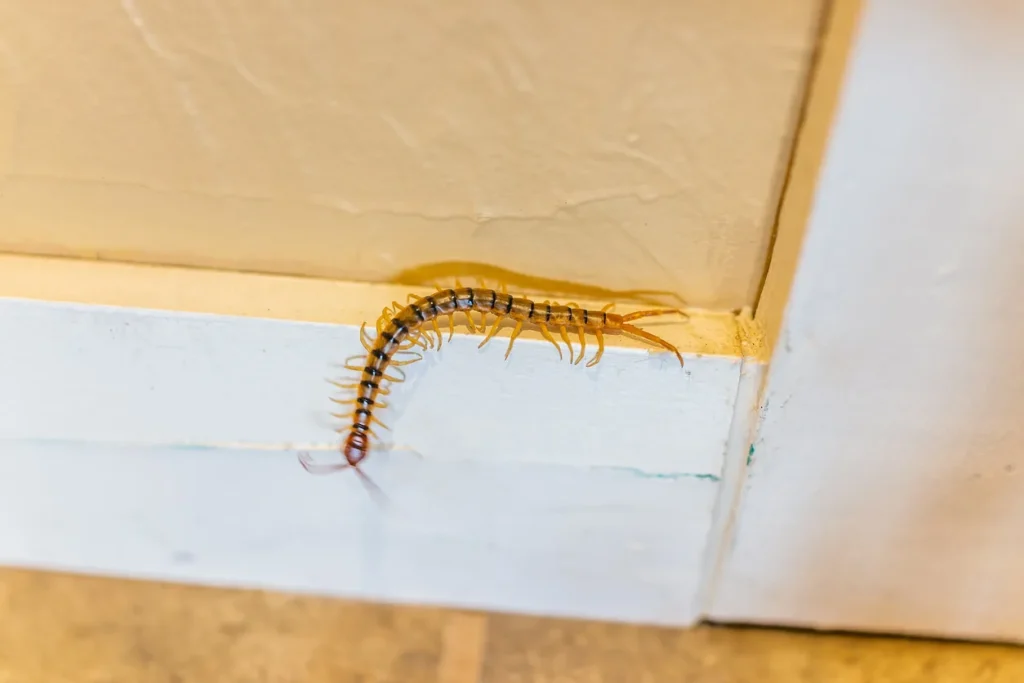
Millipede Treatment in Dorchester County, SC
At All U Need Pest Control, our treatment plans go beyond quick fixes. We create custom solutions designed for the specific environment around your property in Dorchester County.
- The density of trees and landscaping around your home that retain moisture and provide cover.
- The type of groundcover such as mulch, pine straw, or stone used near your foundation.
- Irrigation practices and drainage problems that keep the soil damp for long periods.
- Proximity to wooded areas, farmlands, or marsh edges that encourage millipede populations.
We then refine your plan further by evaluating:
- Where and when you typically notice millipedes, such as after rainstorms or in garages at night.
- Environmental changes like tropical systems, summer humidity, or prolonged rainfall that drive millipede migrations.
By applying Integrated Pest Management methods designed for Dorchester County, we provide both immediate control and long-term prevention.
Comprehensive Inspection/Consultation
Every service begins with a detailed inspection. We evaluate yard drainage, mulch depth, crawl-space conditions, and foundation seals. Historic homes in Summerville often require extra care due to older crawl spaces, while newer builds in developing areas may have irrigation practices contributing to the issue. After inspection, we provide an easy-to-follow action plan designed to address your specific situation.
Treatment
Treatment focuses on sealing entryways and applying products in precise locations. This includes thresholds, porches, crawl-space access, and foundation edges. For raised homes in rural areas, we adapt treatments to safeguard wood structures while addressing damp soil below. Timing applications around weather events ensures lasting protection.
Ongoing Maintenance
Given Dorchester County’s humid climate, ongoing maintenance is critical. Seasonal treatments reinforce protective barriers, while regular inspections prevent small issues from becoming infestations. With ongoing maintenance, millipedes are controlled even during the most active summer months.
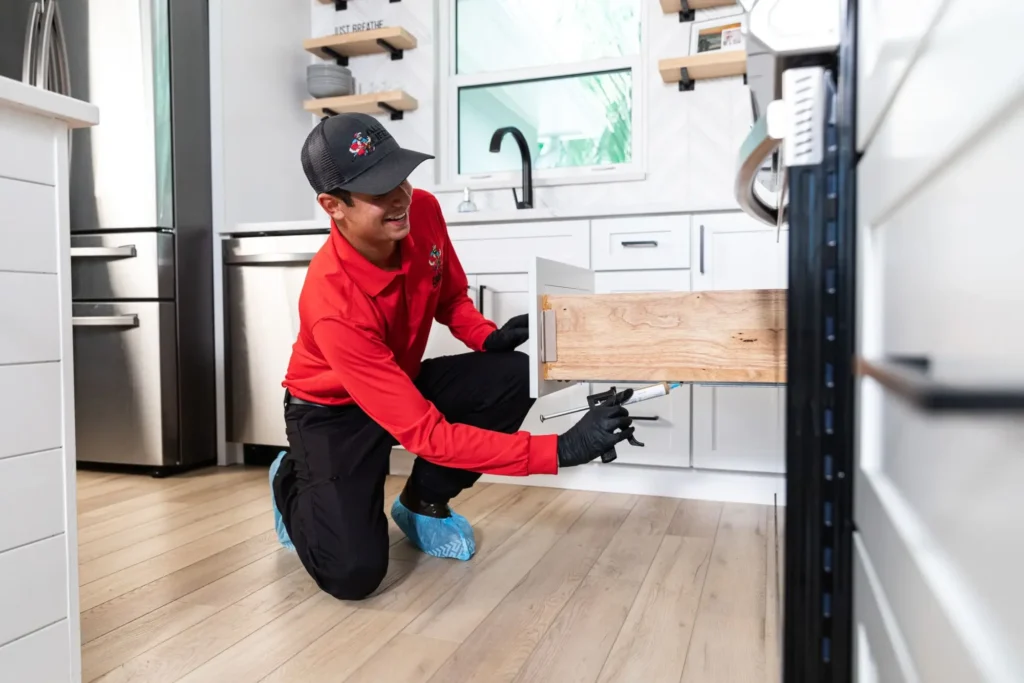
Signs of a Millipede Infestation in Dorchester County, SC
Sightings in Damp Areas
Millipedes are most often spotted in moist areas. Indoors, they appear in bathrooms, crawl spaces, and garages. Outdoors, they gather under mats, mulch beds, and shaded steps. After prolonged rain, groups may enter homes in search of drier conditions.
Damage to Plants
While millipedes usually prefer organic matter, they sometimes nibble on young plants or seedlings. In Dorchester County’s shaded gardens or farm plots, this can cause noticeable damage. Keeping mulch light and beds well-ventilated reduces this risk.
Dead Millipedes
Indoors, millipedes often die due to dry air. If you find curled-up millipedes near doors, thresholds, or baseboards, this signals outdoor conditions are driving them inside. Simply cleaning up won’t solve the issue—moisture control is needed.
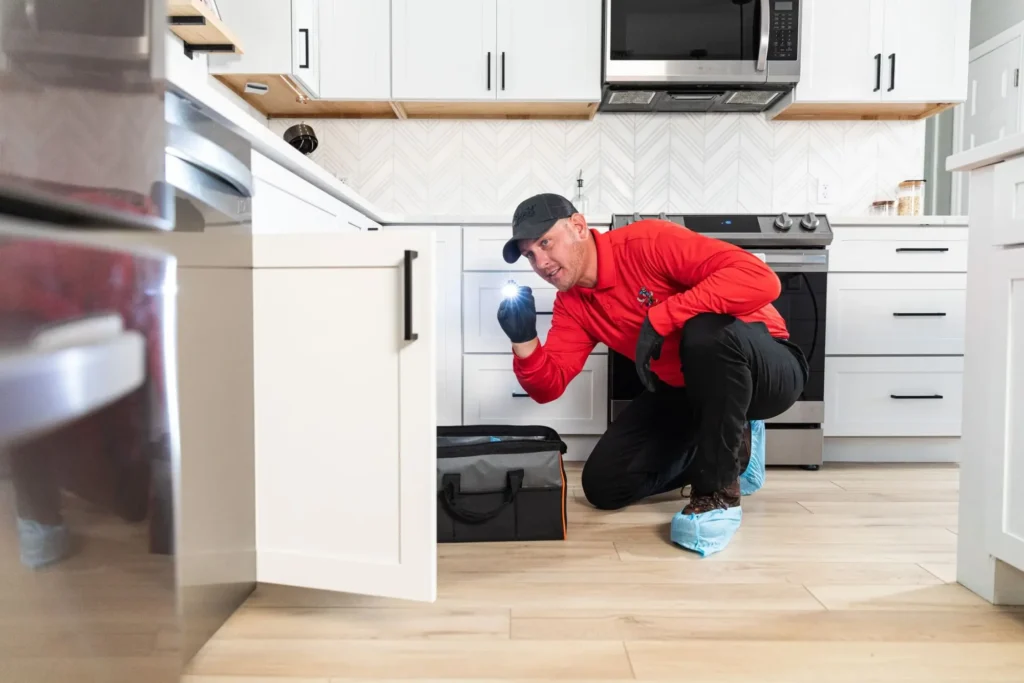
How to Check for Millipedes in Your Dorchester County Home
To assess activity, check common harborage areas and entryways:
- Moisture-heavy areas like crawl spaces, bathrooms, laundry rooms, and garages.
- Entry points including door gaps, pipe openings, worn sweeps, and unprotected weep holes.
- Mulch piles, pine straw, and leaf debris resting against your foundation.
- Yard depressions, patios, and downspout discharge zones that stay wet after storms.
If you cannot pinpoint the source, a professional inspection can uncover hidden issues contributing to millipede invasions.
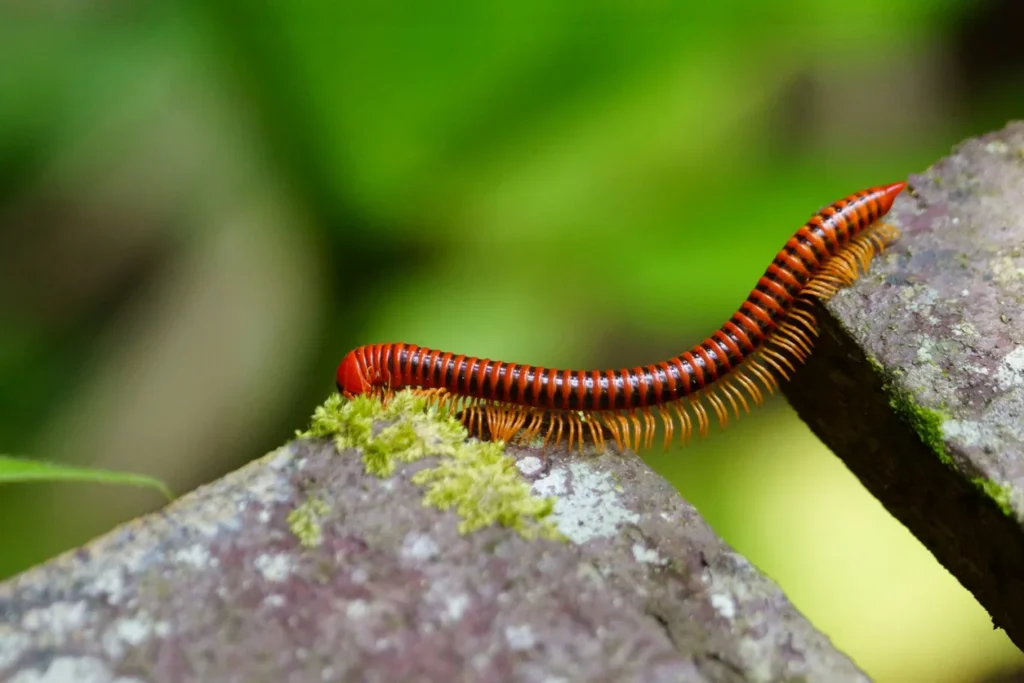
What Do Millipedes Look Like?
Millipedes are elongated arthropods with multiple segments, each carrying two pairs of legs. In Dorchester County, they are usually dark brown or black, blending easily with soil and mulch. Unlike centipedes, they move slowly and curl into spirals when disturbed.
Identifying traits include:
- Dark, earthy-toned bodies that camouflage in mulch and soil.
- Rounded, cylindrical shapes with many leg-bearing segments.
- Short antennae for navigating in moist and shaded environments.
Millipedes can live for several years and reproduce in damp soils, making moisture management essential for control.
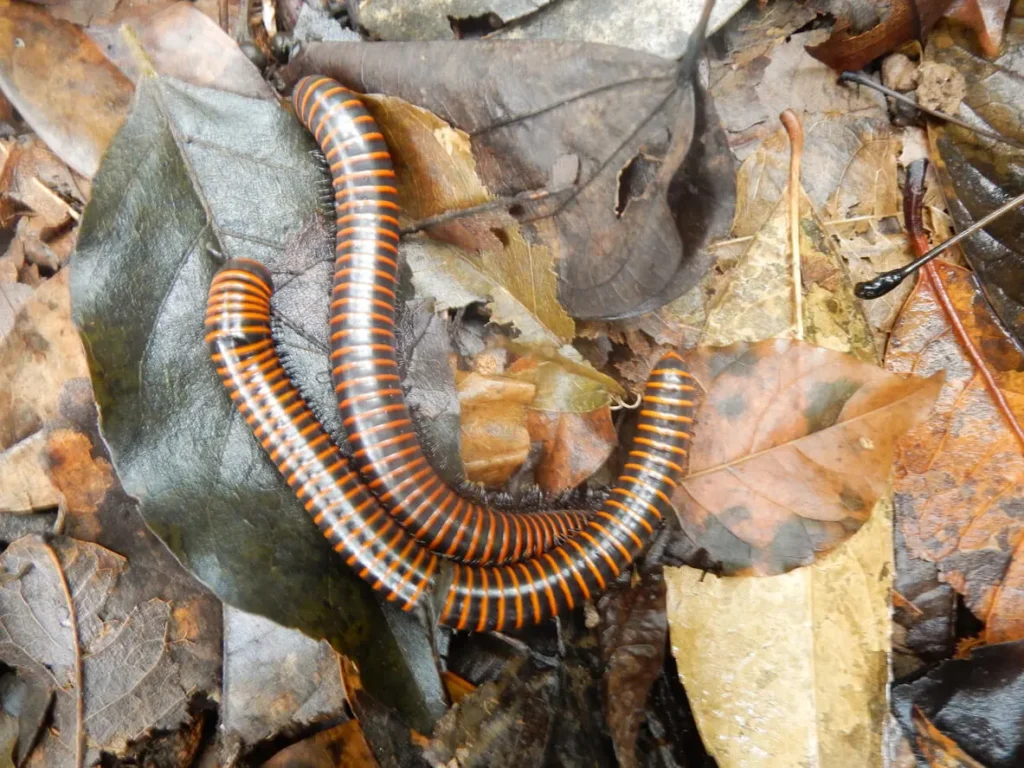
Eco-Friendly Solutions
At All U Need Pest Control, we understand how important it is to protect your Dorchester County home while also preserving the area’s natural beauty. The county is filled with rich farmland, historic districts, and natural preserves, all of which depend on a healthy ecosystem. That’s why our services focus on eco-friendly solutions that balance effective millipede management with environmental care. Our goal is to provide pest-free living conditions while protecting the landscapes and wildlife that make Dorchester County so special.
Minimum-Risk Pesticides
When treatments are necessary, we choose products designed to be safe for families, pets, and non-target wildlife. These formulations are applied carefully and only in specific areas where millipedes are active, such as door thresholds, garage entries, and crawl-space foundations. By concentrating treatments rather than using them broadly, we create protective barriers while limiting environmental impact. This approach is especially important in Dorchester County, where properties may border farmland, wooded preserves, or residential neighborhoods with children and pets.
Eco-Friendly Solutions
Our solutions extend beyond treatment to include natural and sustainable prevention strategies. For example, we recommend reducing heavy mulch use near foundations, improving yard drainage to eliminate standing water, and trimming dense shrubs to improve sunlight exposure. These eco-friendly practices are simple, cost-effective, and extremely effective in limiting millipede populations. In rural areas of Dorchester County, where farmland and wooded lots meet residential homes, such changes are especially helpful in keeping pests at bay without disrupting the balance of nature.
IPM Practices
Integrated Pest Management (IPM) is the core of our services. In Dorchester County, IPM means analyzing the property, identifying millipede hotspots, reducing moisture, and sealing entryways before applying treatments. Because the county’s weather is often unpredictable with sudden downpours and long stretches of humidity, IPM offers a flexible and long-term solution. By combining prevention with precision, IPM keeps millipede infestations from becoming a recurring problem.
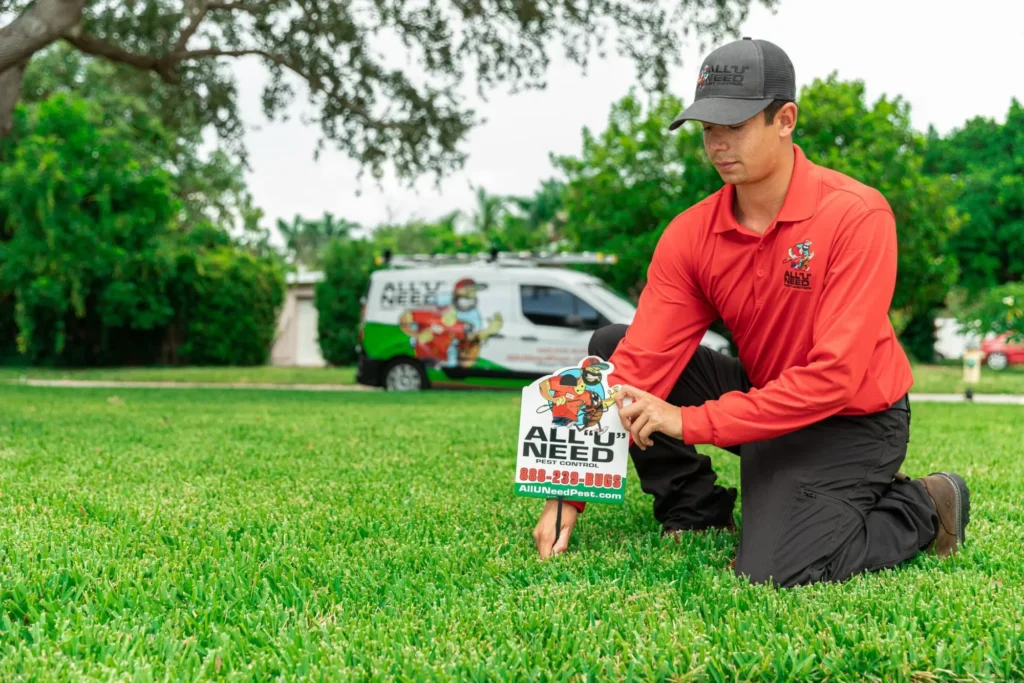
How to Prevent Millipedes in Dorchester County, SC
The best way to manage millipedes is through prevention. With Dorchester County’s humid climate, frequent storms, and varied housing styles, conditions are often ideal for millipedes. By following a few proactive steps, homeowners can significantly reduce the chances of an infestation.
Reduce Moisture Levels
Moisture management is the number one factor. Inside, use dehumidifiers in crawl spaces, basements, and bathrooms. Exhaust fans in kitchens and laundry rooms should run long enough to pull humidity out of the air. Outside, extend downspouts, add splash blocks, and regrade soil where needed to keep water moving away from the home. Irrigation systems should be adjusted to avoid soaking soil near the foundation. These changes are especially useful in Summerville and other areas prone to heavy rain.
Seal Entry Points
Preventing millipedes from entering your home is just as important as reducing moisture. Install new door sweeps, apply caulk to cracks around thresholds, and add covers to masonry weep holes. Crawl-space doors and vents should be sealed tightly. In Dorchester County, many homes are built with crawl spaces, which makes sealing these access points critical. After storms, reinspect for new gaps or cracks caused by shifting soil or moisture damage.
Remove Organic Debris
Organic matter is a millipede’s main food source. Rake up fallen leaves, clear pine straw away from siding, and keep mulch layers thin. Compost piles should be well-managed and stored far from the house. In wooded neighborhoods and rural areas, where leaves accumulate quickly, regular cleanup is key to limiting millipede activity.
Change Your Landscaping
Landscaping choices can influence pest activity. Replace thick mulch with gravel or stone near the foundation, which dries quickly and discourages millipedes. Choose plants that thrive with less watering, and trim shrubs to increase sunlight and airflow. In Dorchester County, many yards are shaded by mature trees, making these adjustments especially effective in reducing damp, shaded areas where millipedes thrive.
Keep Your Home Clean
Indoors and outdoors, cleanliness reduces the chances of millipedes finding shelter. Remove clutter from garages and porches, store items off the ground, and keep outdoor mats and tools dry. Inside, repair plumbing leaks quickly and dry condensation from windows and doors. These steps prevent the buildup of moisture and organic material that attract pests.
Work With a Pest Control Expert
Professional assistance ensures that prevention strategies are complete and long-lasting. At All U Need Pest Control, our Dorchester County services include:
- Identifying and sealing common millipede entry points like gaps in crawl spaces, utility openings, and thresholds.
- Applying treatments precisely where millipedes travel, timed with the county’s rainfall and seasonal humidity patterns.
- Offering tailored prevention advice, from crawl-space encapsulation to eco-friendly landscaping solutions for your specific property.
Location Contact:
419 N Cedar St Summerville, SC 29483
Get Directions for 419 N Cedar StSummerville, SC 29483 on Google Maps843-489-8818
Call All "U" Need Pest Control